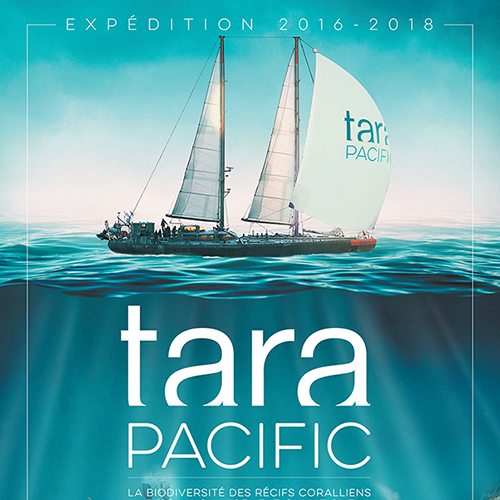Mercator Ocean supports Tara Expeditions’ fight for biodiversityMercator Ocean actively supports Tara Expeditions, a foundation which has been leading scientific and educational voyagesfor over 10 years, to study and understand the impact of climate change and the ecological crisis facing the world's oceans, with concrete results. | 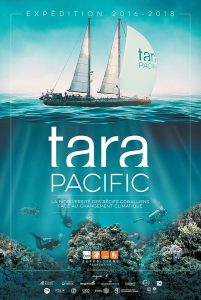 |
Who is Tara Expeditions?The Tara Expeditions Foundation has been active since 2003 in favor of the environment and research, thanks to the legendary schooner Tara, built for extreme conditions. Its work involves raising environmental awareness of the general public and especially young people. The Tara Expeditions Foundation has also developed an advocacy campaign to mobilize citizens and encourage decision makers to take concrete steps towards finding the solutions we need for the planet. |  |
What is Tara Pacific?In May 2016, the Tara Pacific expedition left for a 2-year voyage (until May 2018) across the Asian Pacific to conduct an innovative study of coral reefs. From East to West and from North to South, Tara is sailing the Pacific Ocean to explore the hidden diversity of coral and better understand its ability to adapt to climate change.The expedition will make a total of 70 stopovers in 30 countries, sailing 100 000 km. 40 archipelagos will be studied, 10 sites will be subject to specific studies, 70 scientists from 8 different countries will take 40 000 samples, supported by 18 institutions and research laboratories. | 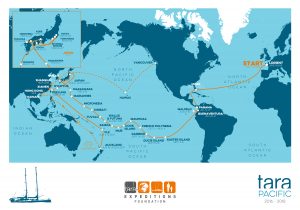 2016-2018 expedition itinerary |
Why are coral reefs important?Coral reefs cover less than 0.2% of the surface of the world ocean, but they provide a home for nearly 30% of marine biodiversity. Their state of health is crucial for the diversity of species they contain, and for mankind. Studying coral reef ecosystems in the Pacific Ocean is a priority since a large number of them have begun to disappear in recent years. 20% have already been destroyed, 15% are seriously injured and might disappear within 10 years, and 20% may disappear in less than 40 years. | 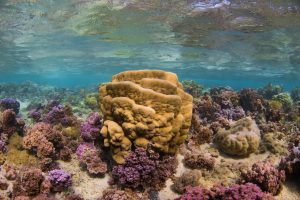 "Pocillo-meandrina" coral ©Lauric Thiault |
How does Mercator Ocean concretely support Tara Expeditions?As a trusted scientific partner since 2009, Mercator Ocean has for instance played an important role in the success of Tara Oceans (2009-2013), helping Tara Expeditions to establish a reference for ocean ecosystems and to set up a method for predicting and following the evolution of these ecosystems in relation to climate change. Mercator Ocean brings expertise based on real-time information provided by the Copernicus Marine Service (global products, maps, digital files) on the physical state of the ocean, such as temperature, salinity, currents and sea surface height, and – a new development for the Tara Pacific voyage - on the biogeochemistry of the ocean as well (such as chlorophyll and oxygen). | 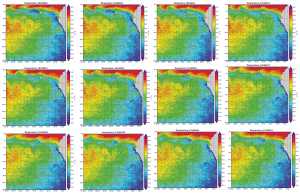 Cartes fournies par Mercator Océan sur la température |
| Fabien Lombard, scientific coordinator on board Tara Pacific, states: “The information provided by Mercator Ocean serves several purposes during the expedition. It’s important to note that, even though corals are at the heart of the sampling campaign, they are not the sole focus of the study. Several parameters taken together are needed to provide a global picture of how reefs adapt and evolve according to environmental conditions. Plankton is one of the parameters that the expedition also studies to better understand the coral reef ecosystem. So, for example the data allows us to expand the scope of the sampling, by allowing us to better understand the changes we notice on board (like in high productivity areas, or areas with strong currents), as well as to plan our daily activities more efficiently, based on oceanographic events taking place. With help from the data, such as 5-day forecasts, a sampling procedure might be conducted earlier or later, or the route of the boat might even be slightly modified in order to conduct sampling in an area of particular interest. Most importantly, the data work as a guide to sample around the islands and “collect island wakes”, meaning sampling in the areas rich in phytoplankton and zooplankton created by the combined action of currents and islands”. The data most frequently used concern temperature, salinity, currents and chlorophyll levels. Other data include nutrients and micronutrients such as nitrates, phosphates, silicates and iron. These are useful indicators in areas that are lacking plankton (e.g. the South Pacific ocean normally contains limited amounts of iron). | 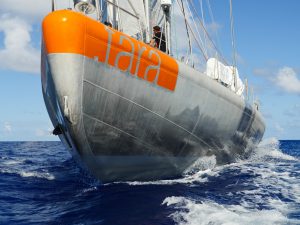 © Maeva Bardy   Maps on chlorophyll and nitrates provided by Mercator Ocean |
| Lombard concludes: “Copernicus Marine Service information is especially useful to us. Because it comes from observation-based models (working in a similar way as weather reports), they are especially reliable. The scientific support provided by Mercator Ocean based on Copernicus Marine Service information gives us true operational guidance”. Want to find out more? Visit the Tara website: www.taraexpeditions.org. | 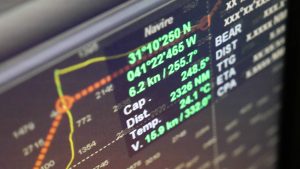 On board navigation © Maeva Bardy |
